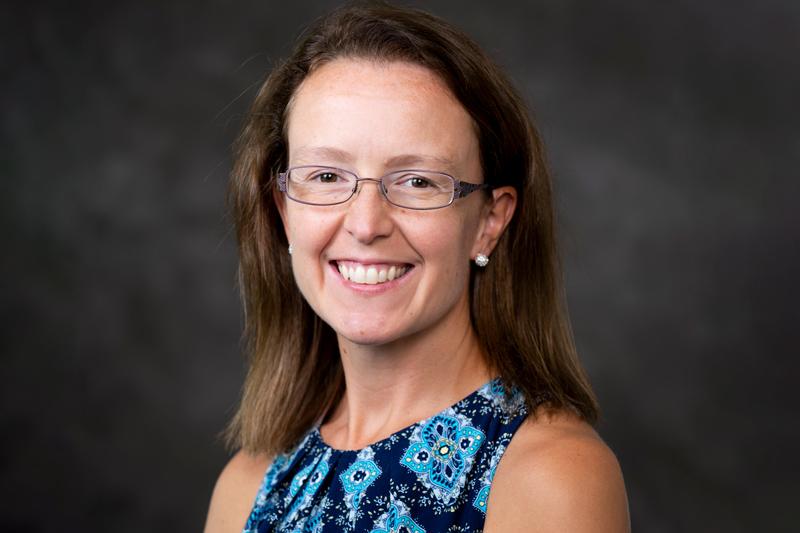-
About
- Departments & Offices
-
Academics
- Physician Assistant
- Special Master’s (MBS)
-
Admissions & Financial Aid
- Tuition & Fees
-
Student Life
-
Research
- Research Labs & Centers
-
Local & Global Engagement
- Global Health Programs
- Community Engagement
Faculty Spotlight: Rosanne Washington
"As faculty, we build strong connections and professional relationships with our students which continues beyond their time here at Tufts which speaks volumes in my opinion."

Rosanne Washington, PA-C, clinical associate professor and director of didactic education in the Tufts University School of Medicine Physician Assistant (PA) Program, shares insights into PA education and clinical practice. Discover the valuable lessons she imparts to students as they navigate their educational journey.
What courses do you teach in the Tufts PA Program?
"I teach Primary Care Medicine II, Primary Care Medicine III, and I teach the endocrine module in Internal Medicine II. I also assist in Physical Diagnosis lab on a weekly basis during the spring and summer semesters."
What inspired you to pursue a career in physician assistant education, and what led you to join the faculty at Tufts University?
"I have always been interested in teaching for as long as I can remember, but pursued medicine because of my love of science, how the body works, and wanting to play a bigger role in helping others through the practice of medicine. As a PA working in primary care medicine, I spend a significant amount of time every day educating my patients on their acute and chronic diseases/illnesses as well as engage in preventative medicine, which is also a lot of patient education. I also worked with health professional students in several of my previous PA positions and found the experience to be extremely rewarding. I truly love this profession and recognized that I wanted to play a bigger role of growing it over time. I recognized that I could share my love of teaching and the PA profession by pursuing a career in PA education. I hold high standards for myself as a PA and a PA educator, and I have found that same philosophy here at Tufts. I feel extremely supported here at Tufts and I work with a truly amazing team. We strive as a team to maintain a collaborative and supportive environment for our students and provide them with the knowledge and skills to be competent, professional, and compassionate healthcare providers in the future."
Can you share a memorable teaching moment or experience that exemplifies the unique approach to PA education at Tufts?
"I think what sets our program apart from others is the student-centered approach that we take in our program. We value student feedback, and we continuously work to adapt to the changing learning environment of our students. As faculty, we build strong connections and professional relationships with our students which continues beyond their time here at Tufts which speaks volumes in my opinion."
How do you incorporate your real-world clinical experience into your teaching methods, and how does this benefit students in the program?
"Because I maintain a clinical position working in a primary care office one day each week, I am continuously incorporating my clinical experience into my teaching, helping to build connections to their classroom learning experience. I include case studies in my teaching which I regularly pull from my clinic experience that I feel adds value to our classroom discussions."
Tufts PA program emphasizes interprofessional collaboration. Can you speak to the importance of this approach in preparing future PAs for the complexities of modern health care?
"Working in healthcare requires strong interpersonal skills as well as the ability to work collaboratively with other members of the healthcare team to deliver high quality care. Therefore, it is important for our students to be instructed on the roles and responsibilities of other healthcare professionals, in addition to building skills on how healthcare professionals from different disciplines can work together to improve patient outcomes. Our students engage in a number of IPE activities throughout the duration of our program, working with a wide variety of students from other health professional programs within the University. We also have a course in the fall semester of their didactic year called Physical Medicine and Rehabilitation where they are exposed to several healthcare professionals, learning about their roles and responsibilities, in addition to when it is most appropriate to refer to these specialists to improve patient care."
What advice would you give to prospective students considering the Tufts PA program?
"My advice for prospective students considering our program would be to review our program mission and goals to make sure they align with your mission and goals as a prospective student and future PA. When choosing a PA program, you want to surround yourself with people who share in these values and goals because they will be your primary support system in the program. You will be working together, supporting each other, and learning from each other, which will aid in your success as a student here at Tufts. I would also encourage you to attend an information session to learn more about the admissions process, admission requirements and to hear from current students about their experience thus far. And never hesitate to reach out to the program if you have any questions as we are here to help."
Related Links
Tufts PA Program Overview
Prerequisites Information
Request More Information